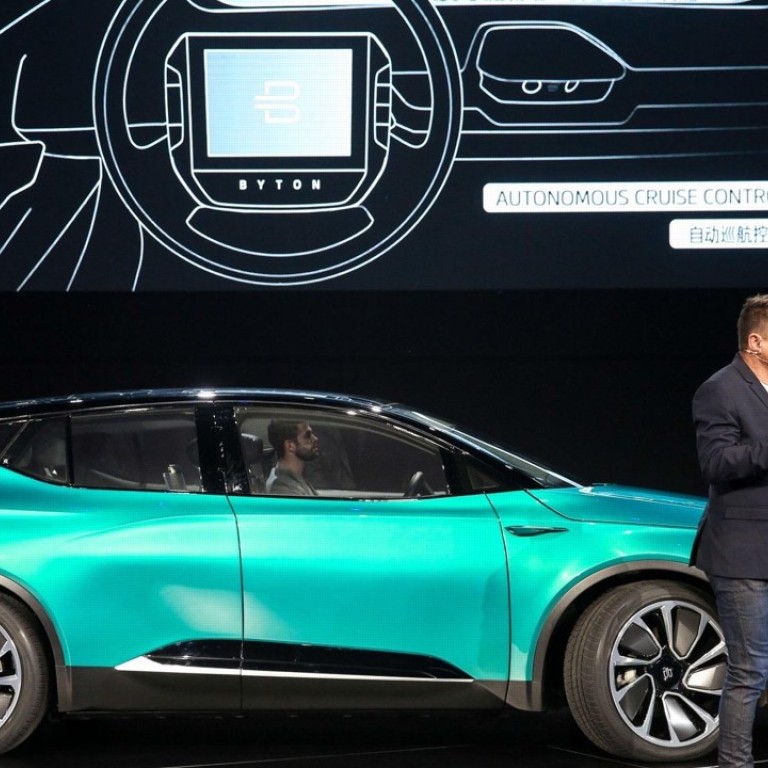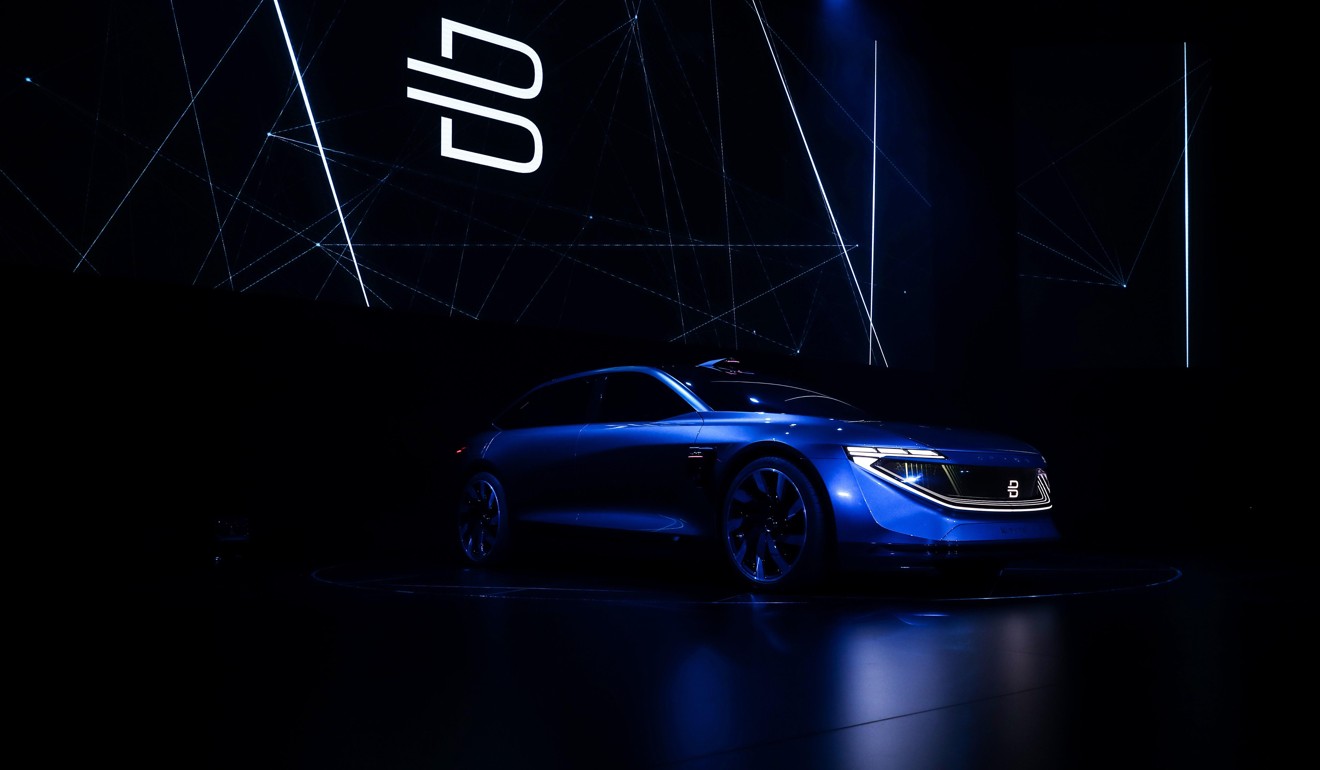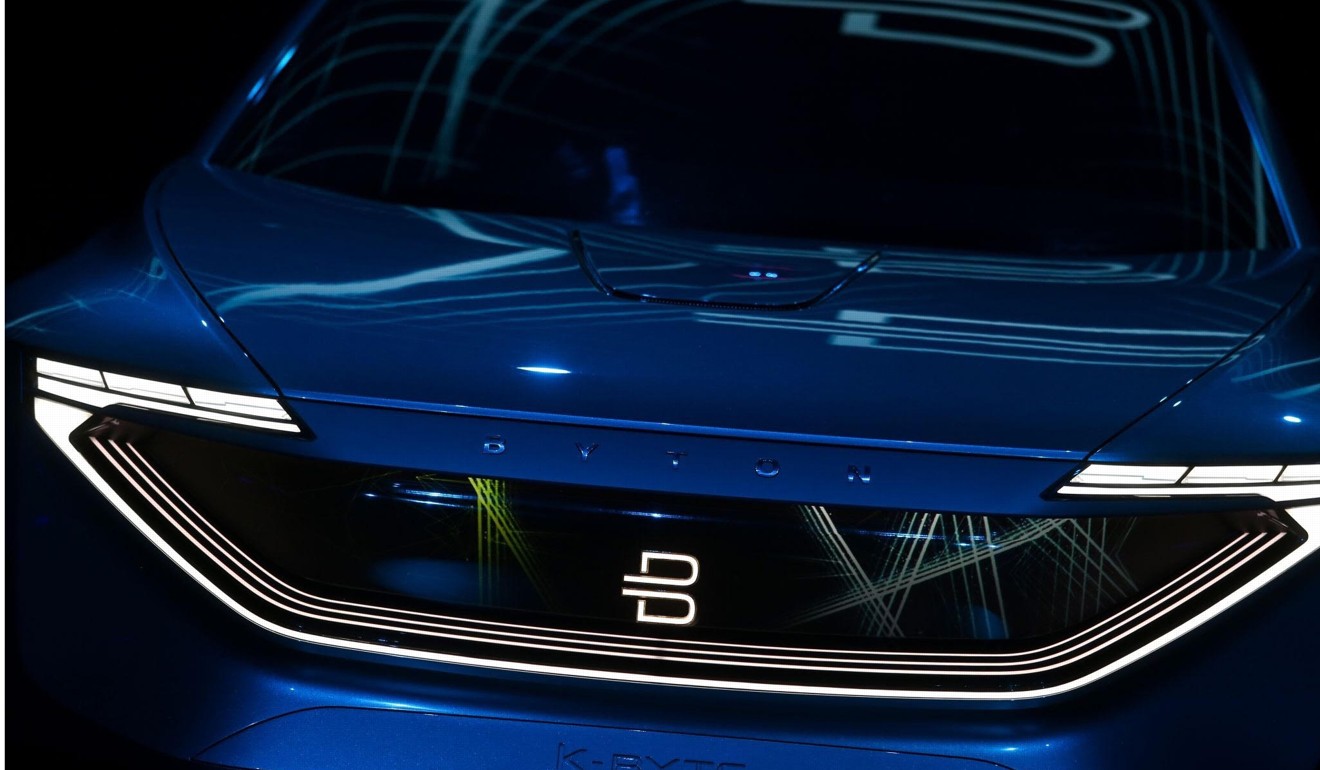
China's Byton weighs safety and future as it unveils first autonomous model in wake of Tesla, Uber crashes
The US is currently “a bit ahead, but China is developing very fast” in autonomous driving technology, according to Daniel Kirchert, co-founder and president of Nanjing-based Byton.
It seems clear enough that the level of automation is going to increase in the vehicles of the future, but how much is too much?
For Chinese-backed electric car start-up Byton, that future of fully self-driving vehicles would most probably take place first in controlled settings where every car or bus is piloted by computers, before being rolled out to wider, messier traffic environments.
To prepare for that future, whenever it might arrive, the Nanjing-based carmaker unveiled on Tuesday its first concept sedan that can drive itself under most conditions without human intervention. The model will feature Lidar, or a sensing technology using lasers to measure distances, and is expected to start production in 2021.
“Autonomous driving is clearly our goal,” Daniel Kirchert, Byton’s co-founder and president, said in Shanghai at an event showcasing the model. “The sedan will showcase how real smart intuitive cars will look like.”
Besides the sedan, Byton earlier introduced an SUV with a lower level of autonomous driving capability that is slated to be sold in China starting from the fourth quarter of 2019, followed shortly by in Europe and the US.
Both Byton models will feature an edge-to-edge dashboard display, with on-board voice assistant and gesture control, according to Kirchert, who formerly headed Infiniti’s China operations. The models will cost about 40 per cent less than a Tesla Model X.
“It’s very important for a brand to show its designs across different products and become instantly recognisable,” he said. “It’s a beautiful sedan with futuristic design, very progressive but still aesthetic, not too aggressive,” said Kirchert. Byton chose to launch its concept sedan on the eve of the Asian edition of the Consumer Electronics Show (CES), which begins on Wednesday.
Autonomous-driving technologies will reshape how cars have looked in the century-old industry. “Right now, the cars are still designed by their power and sportiness, such as the pipes you can see,” he said, “but in the future, a smart connected car will have different icons such as Lidars.”
The company is working with Aurora to test prototypes in the US and is partnering with Baidu in China for level four autonomous driving technologies, according to Kirchert.

The global race to build the fully autonomous car was dealt a collective setback after Uber and Tesla were involved in crashes in the US. In March, Tesla reported a second deadly crash that was tied to its semi-autonomous driving system Autopilot, where a Model X hit a concrete highway lane divider in California. A self-driving Uber car failed to slow down and killed a 49-year-old pedestrian in Arizona.
Kirchert said autonomous driving will be determined “not by consumers but by regulation and government” as it’s more feasible to have self-driving fleet first operate in limited areas.
The US is currently “a bit ahead, but China is developing very fast”, he said. China’s push to develop artificial intelligence will also lend self-driving cars a boost because autonomous vehicles are one of the biggest applications of AI, he said.
Byton is one of a few dozen electric car start-ups to have sprouted in recent years after the Chinese government started handing out special manufacturing permits to firms other than more traditional players. The country is the biggest market in the world for both traditional combustion-engine vehicles and electric vehicles.
Autonomous driving is one of the areas where China and the US are competing for leadership, part of a broader contest for supremacy in the next generations of technology that is revolutionising the way people work, play and live.

Self-driving cars are increasingly seen as an amalgamation of the latest technologies, including 5G, manufacturing and new energy, and the holy grail of applied technology because they must prove to be safe in sometimes chaotic, unpredictable real-world conditions.
How much risk can be deemed as a healthy doze to take? Kirchert said the answer depends.
“The technology is so difficult, as it involves human life,” he said. “There will always be some error even when autonomous driving can be 10 or 100 times safe than human could drive.”
“As a manufacturer, you cannot comprise the safety so you cannot bring the product if not sure. You have to really reach high confidence,” he said. “But in terms of business, of course you have to take risks. If you believe that is the future, investing in the technologies or putting it into our product is something we have to do.”
On Monday, the start-up announced it has completed a US$500 million Series B round of funding led by China’s oldest carmaker, FAW (short for First Automotive Works). Its other investors in the latest round include the country’s dominant battery producer Contemporary Amperex Technology Co Ltd and Tus Holdings. The company recently saw the first batch of five test SUV vehicles roll off lines from its plant in Nanjing.
“If we can’t reach the level of safety, we won’t launch to our customers, but we have to go for it,” he said. “It’s the future of mobility and transportation.”

